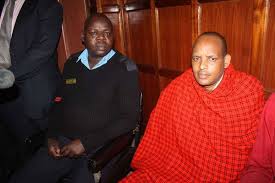High Court has declared two sections of the Parliamentary Powers and Privileges Act that grants Members of Parliament immunity and privileges as unconstitutional, null and void.
Justice John Mativo declared sections 7 and 11 which prevent Members of parliament from being served court documents within the house as null and void saying they contravene other articles of the constitution of Kenya.
“The primary duty of the courts is to uphold the constitution and the law, which they must apply impartially and without fear, favor or prejudice,” Ruled Mativo.
The judge added that courts should strive to achieve is the appropriate balance between their role as the ultimate guardian of the constitution and the rule of law including any obligation that parliament is required to fulfill in respect of passage of laws and the respect which the re required to accord to other branches of the government as required by the principle of separation of powers
Former Law society of Kenya CEO Apollo Mboya petitioned the decision in court seeking orders nullifying the Bill that was passed into law in 2017 purporting to grant non-existent powers which essentially elevates them above the law.
Mboya argued that the President abused his powers and mandate under article 115(1) of the constitution by assenting to the act instead of referring it back to Parliament for reconsideration of the impugned provisions which are manifestly unconstitutional.
Mboya claimed that the sections makes Parliament a house of secrets beyond the reach of the constitution.
He further challenged the constitutionality of the act on grounds that parliament failed to conduct public consultation with all stake holders during the process leading to the enactment of the act which ousts the jurisdiction of court to question parliamentary proceedings or decisions.
He further claimed that it contravenes article117 (2) of the constitution on powers, privileges and immunities of parliament, granted to business of parliament, its committees, the leaders of the majority and minority, chairpersons and members of committees.
Lawyer Mboya claimed that the sections make Parliament a house of secrets beyond the reach of the constitution.
According to the Attorney General’s grounds of opposition, section 7 is borrowed from the best international practice and aims at safe guarding the principles of parliament immunity for MPs by protecting then from civil action while they are within the precinct of the house.
The AG added that parliament privilege is the privilege of the house of parliament as a whole, not the individual member and it’s not more than what parliament needs to undertake its mandate.
“The courts should be slow in declaring legislations unconstitutional and until the contrary is proved there is a presumption of constitutionality of a statute,” argued the AG.
In their replying affidavit, the National assembly and the Senate thought their clerks avered that allowing service when parliament is in session will affect orderly conduct of business and its committees adding that the service is not permitted within Parliament.
They added that the courts ought to refrain from judicial interference in parliament proceedings.
Both the Senate and the National assembly who were enjoined as interested parties said that there was sufficient public participation prior to the enactment of the law.










